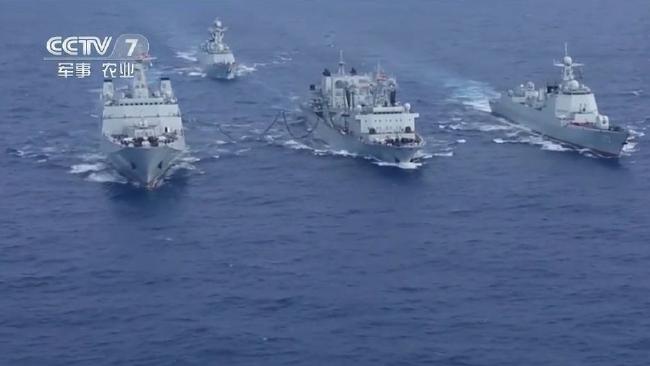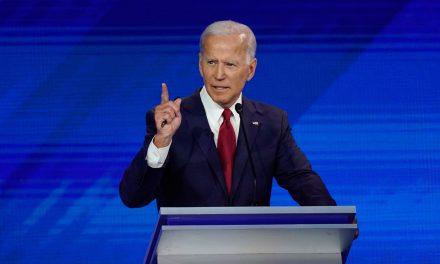20 February 2018
A Chinese naval force consisting of one modern destroyer, a frigate, an amphibious assault ship and a support tanker entered the Indian Ocean last week, news portal Sina.com.cn said without linking the deployment to the crisis in the Maldives or giving a reason.
The force may appear to be small, but it is extremely capable. The Type 052D guided missile destroyer (Luyang-III class) is among its most modern combat ships. It has a crew of 280 and weighs some 7500 tons. It carries a helicopter, land-attack cruise missiles, surface-to-air missiles, surface-to-surface missiles and anti-submarine missiles, the website reported.
The Type 071 30,000-tone amphibious transport dock is suitable for humanitarian relief and for landing troops. It can carry a variety of amphibious assault vehicles and landing craft, along with two helicopters. It also has hospital and command and control facilities. It has accommodation for up to 800 troops.
“If you look at warships and other equipment, the gap between the Indian and Chinese navy is not large,” Sina.com.cn said.
The above force is backed-up by China’s 28th Anti-Piracy Task Force out of Africa, which is believed to have moved closer to the middle of the Indian Ocean in recent weeks.
The People’s Liberation Army posted photos and a story on rescue training exercises taking place in the East Indian Ocean on its official Weibo account.
Chinese task force may not have the capability of, say, the US 5th Fleet. But China will get there soon. China earlier this month advised Chinese citizens to avoid visiting the Maldives.
The deployment is probably aimed at stopping India from intervening. China has big plans for Maldives and it doesn’t want anyone getting in the way. Reported Australian news media.
Finally, President Yameen has delivered a death blow to India’s influence in the Indian Ocean. India is an oil dependent country. Every day, more than 40 million barrels of oil passes through the waters between the Maldives and Ceylon, to India’s south. China now can have a strangle hold on Indian economy.
This is not the first time a Chinese task force has entered the Indian Ocean. Over the last decade the PLA-Navy has passed through the region many times to participate in UN and EU backed counter-piracy missions off the Horn of Africa. But this time it is different. China has a military base at Djibouti. Its ‘One Belt One Road’ strategy has enabled it to build extensive port infrastructure in Pakistan and Sri Lanka.
As things stand now, it is in the interest of China to have Yameen in power. Because opposition leader and former President Mr. Mohamad Nasheed has antagonised China by saying that it has grabbed land from the Maldives. China will want to do its utmost to keep him away from power.
China’s interests in Maldives are so significant that, even though they have taken strident action against corruption in China, they choose to close one eye to the rampant corruption in Maldives.
They also do not have a choice, because the opposition refuses to engage with them despite many overtures made by the Chinese.
China is not concerned about the potential collapse of a fragile democracy, not even its own investment in the island. But, control of the Indian Ocean is important for the success of its ambitious ‘One Belt, One Road’ project and to keep India under check. If things take a turn for the worse in the Maldives, China can emerge as an international hero by quickly landing its troops in a “humanitarian intervention”.
The presence of Chinese warships in the Indian Ocean is a deterrent to Indian intervention, even in the most peaceful form.
The Indian Express reported, at present, the Indian Navy has two detachments of Advanced Light Helicopters (SAR variant) and the Indian Coast Guard has a Dornier aircraft positioned in the Maldives. The report added that the Indian Navy is currently undertaking a month-long exercise ‘Pashchim Lehar’ in the Arabian Sea. The military exercise is reportedly seeing the participation of more than 40 warships. Some of these warships are close to Maldives.
The report also said the Chinese naval task force was approximately 2500 nautical miles away from the Maldives. According to the Indian Navy sources, the Chinese ships had entered the eastern part of the Indian Ocean Region through the Sunda Strait – that lies between Java and Sumatra – and exited through the Lombok Strait – that lies between the Indonesian islands of Bali and Lombok.
Indian media went shouting about India having put its Special Forces on alert. TV debates centred around an operation like ‘Cactus’ as in 1988. This is ancient history. Now the Indian media is mum about the deployment. India chose a diplomatic path by asking the United Nations to pressure Yameen’s government to restore democracy and refrained from sending troops to preserve its dwindling political influence in the Maldives. UN has no clout on President Yameen. He will deal with it the same way he dealt with the Commonwealth.
China decried any military intervention in Maldives – meaning by India. It now shows that it will not hesitate to do so itself. War between India and China is unlikely. But if it happens, Maldives can be proud of a war in its very own backyard instead of uninhabited, barren Himalayan border between the two big nations.
“The US continues to call on President Yameen to end the state of emergency, uphold the rule of law, permit the full and proper functioning of the Parliament and the judiciary, restore constitutionally guaranteed rights of the people of the Maldives, and respect the Maldives’ international human rights obligations and commitments,” State Department Spokesperson Heather Nauert said.
The UN, the U.S., the U.K., the European Union, Australia and Canada, among others, had earlier asked Mr. Yameen to comply with the ruling and ensure that the rule of law prevails.
Australia, Japan and many other Asian nations are concerned about this development. China claims most of the land and sea where Brunei, Malaysia, the Philippines, Taiwan and Vietnam also have claims. They are also watching the situation closely as what happens in the Maldives may be a warning bell for them.
Related articles:
Maldives: Mohamed Nasheed speaks at the Huddle conclave in Bengaluru.
Maldives: Unrest after emergency rule
Maldives: Special envoys to friendly nations, China, Pakistan and Saudi Arabia.















